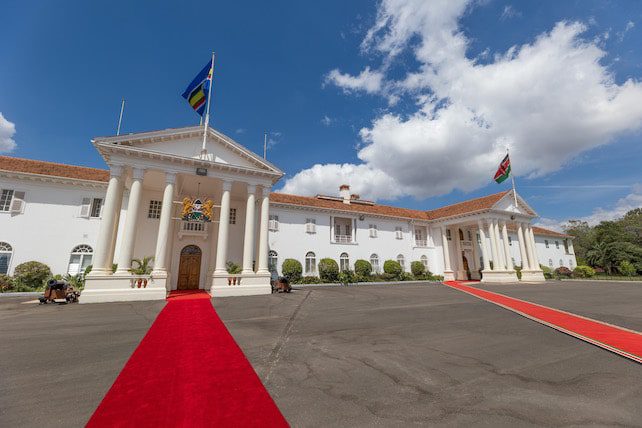NAIROBI, Kenya (RNS) — Kenya President William Ruto, an evangelical Christian, is known for quoting Bible verses and singing gospel songs in public settings and once wept openly at a church service.
Now Ruto has revealed plans to build a church at the State House, his official residence, at his own expense. The columned building featuring large windows and two rooftop crosses is expected to accommodate 8,000 worshippers, according to an architectural design published in the Daily Nation, one of Kenya’s leading newspapers, and will cost at least 1.2 billion Kenya shillings, or about $9.3 million.
RELATED: African church leaders address decolonization and reparations and debate their role
The project has been criticized even by religious leaders in the East African nation.
“The State House is not the president’s property, it’s the people’s property,” the Rev. Joachim Omolo Ouko, an Apostle of Jesus Catholic Priest in the Kisumu Archdiocese, told Religion News Service. “Kenyans are renting him the space and there is no way he can do something on that property without asking for permission from Kenyans.”
Anglican Archbishop Jackson Ole Sapit fears a church at the president’s residence would complicate the separation between church and state. “The church is a sanctuary for worship, and it is supposed to be set apart from any unholy use, representing the kingdom of God. When you have a church at the State House, which kingdom does it represent?” Sapit told local media.
Ruto had fired back, saying, “I am not going to seek apologies from anyone for building a church for God. If the devil gets annoyed, let him do whatever he wants.”
He added that his church on the State House grounds is nothing new, pointing to a small church made of corrugated iron, a common building material in the country. “It was made of iron sheets,” Ruto said, “but I have decided to build a church that meets the standards of the State House. This will not cost the government of Kenya a single penny. I will build it with my own money.”
There is precedent for church building by Kenyan leaders. Daniel Arap Moi, who was the country’s longest-serving president, owed his education to the African Inland Mission School and supported the construction of Milimani Africa Inland Church, which stands less than a kilometer from the State House gate.
Kenya’s population is 85% Christian, with Muslims representing 11% and Hindus, Buddhists and followers of African traditional religions making up the rest. The country’s constitution explicitly forbids a state religion.

